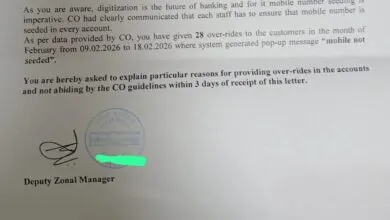SBI received Rs 10.68 crore as commission for selling Electoral Bonds

The State Bank of India (SBI) charged the Finance Ministry a total of Rs 10.68 crore as a “commission” for the sale and redemption of electoral bonds between 2018 and 2024. This means that the bank received this amount as a fee for facilitating the process of buying and selling these bonds. Click here to download Electoral Bonds Data.
The electoral bond scheme was divided into 30 phases, and during each phase, the SBI charged different fees. For example, in the fourth phase, the fee was Rs 1.82 lakh, while in the ninth phase before the 2019 Lok Sabha elections, it was Rs 1.25 crore.
During their correspondence, the SBI and the Ministry of Finance discussed various concerns. One major topic was the “commission” charged by the bank. They also addressed issues such as errors in printing the bonds and anticipated increases in bond sales before elections.
Documents obtained through a Right to Information (RTI) application by the Indian Express revealed that the SBI regularly reminded the ministry to settle outstanding dues. In one instance, the Chairman of SBI, Rajnish Kumar, wrote to the then Economic Affairs Secretary S C Garg, highlighting unpaid dues amounting to Rs 77.43 lakh for seven phases of the scheme. The Chairman explained how the commission was calculated, referring to government commission rates and the complexities of the scheme.
Disputes also arose between the two entities regarding the imposition of 18% GST (Goods and Services Tax) on the commission. The ministry also applied a 2% Tax Deducted at Source (TDS) on the GST in one instance. The SBI requested a refund of Rs 6.95 lakh, which was deducted as TDS on GST.
Additionally, the SBI provided details on the quantity and value of electoral bonds that were not redeemed and were sent to the Prime Minister’s Relief Fund (PMRF) for each phase.
The bank also raised concerns about printing errors on the electoral bonds. They discovered cases where bond serial numbers were printed over hidden serial numbers, which were meant to be visible only under ultraviolet (UV) light. This raised concerns about the authenticity and security of the bonds.
To meet the expected demand before the 2019 Lok Sabha elections, the SBI recommended printing more bonds. They reiterated similar suggestions in January 2024, five weeks before the Supreme Court declared the scheme unconstitutional. This means that the electoral bond scheme was no longer considered legal or valid by the court.
According to the data made available by the Election Commission, electoral bonds worth ₹12145.87 crore were redeemed by various political parties with ₹6,000 crore going to BJP alone. Indian National Congress (INC) received around ₹1,351 crore and Trinamool Congress ₹1,592 crore. Click here to download Electoral Bonds Data.
